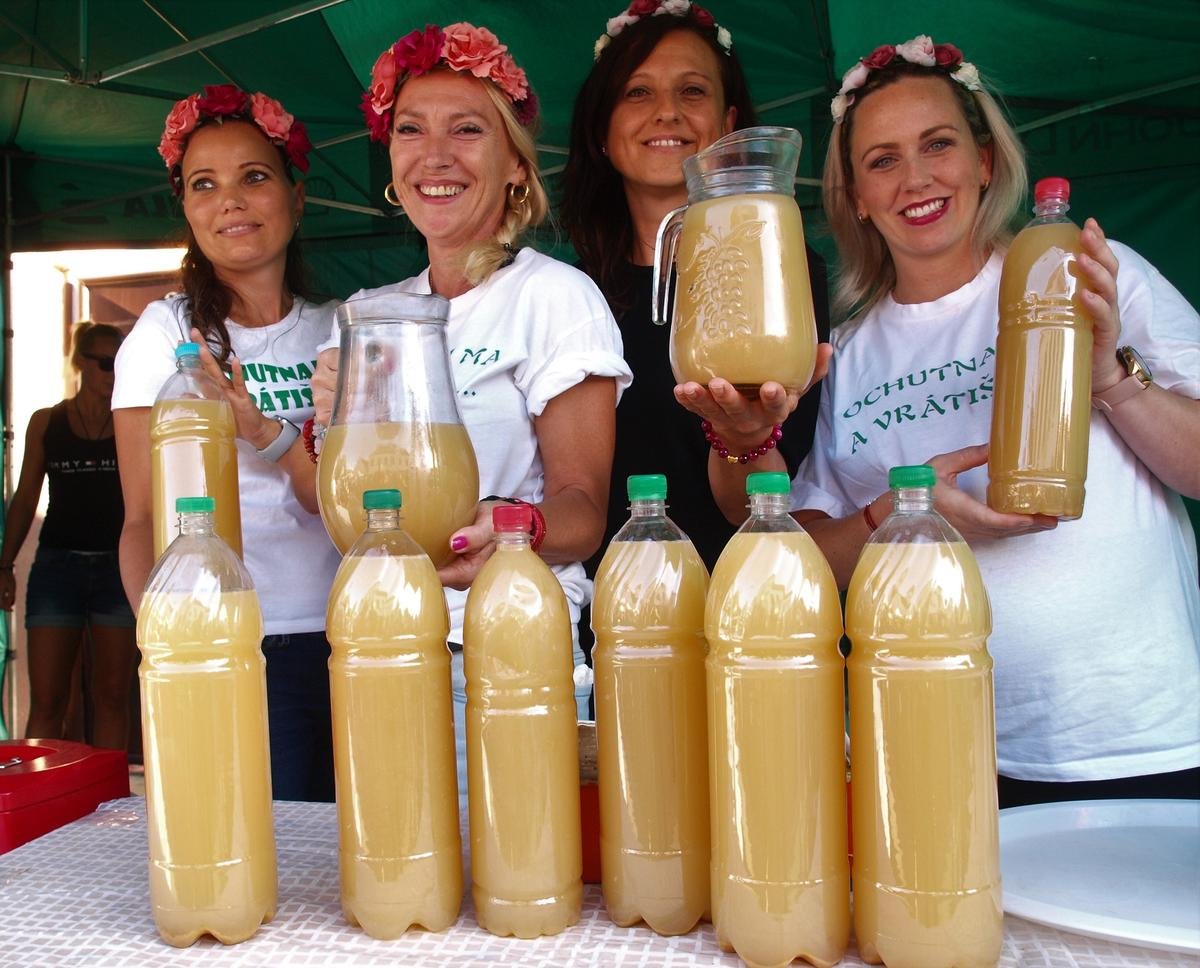For those of us who love autumn (jeseň) above all other seasons, Slovakia gives us another reason to celebrate (oslavovať) the arrival of September - burčiak (immature wine) in all its yeasty, good-humoured splendour.
I first drank burčiak 32 years ago this month, urged by students (who else?) to sample a light-brown, still-fermenting broth. I've since then over-indulged, sworn off it, helped to pick the grapes (hrozná) that are its main ingredient, and then been cheated out of the yield.
Burčiak is the first result of Slovakia's wine crop, here and in the Czech Republic being a traditional admixture of the juice (mušt) from freshly picked grapes (usually white) mixed with sugar (cukor) and yeast (kvasnice). After about a week, or less in a warmer cellar (pivnica), you get a frothy (spenený) mixture said to be only slightly alcoholic. If, however, you drink more than a litre of burčiak, you'll know you've been drinking, and so will those around you.



 The offer of burčiak, slightly fermented grape juice, is a specialty offered at grape harvest festivities in Slovakia. (source: TASR)
The offer of burčiak, slightly fermented grape juice, is a specialty offered at grape harvest festivities in Slovakia. (source: TASR)